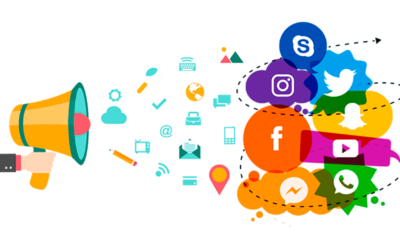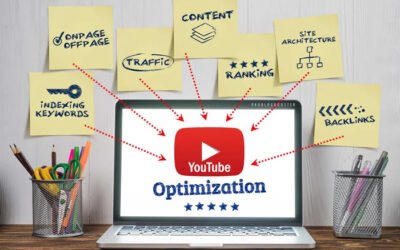What is digital marketing explain with examples in Full Guide 2023. Digital marketing is a broad term that encompasses everything from SEO to blog writing and distribution channels to budgets. This guide will help you understand the key pillars of digital marketing, allowing you to create your digital marketing strategy to optimize advertising through online channels like search engines, websites, social media, email, and mobile apps.
This digital marketing guide will teach you:
What is digital marketing?
Digital marketing is a broad term that encompasses everything from SEO to blog writing and distribution channels to budgets. We’ll help you understand the key pillars of digital marketing in this guide, allowing you to create your digital marketing strategy to optimize advertising through online channels like search engines, websites, social media, email, and mobile apps.
- Search engines
- Websites
- Social media
- Mobile apps
- Text messaging
- Web-based advertising
In a nutshell, digital marketing is any marketing campaign that uses any of the above online media channels.
Consumers today rely heavily on digital means to conduct product research. According to HubSpot Research, 77% of customers conduct online research on a brand before engaging with it. Meanwhile, 51% of consumers say they use Google to do product research before purchasing.
How does digital marketing work?
Digital marketing employs a variety of strategies to reach customers, whether the goal is to persuade them to make a purchase, raise brand awareness, or simply engage with your brand. Modern digital marketing consists of a complex network of channels, including:
- Social media
- Content marketing
- Website marketing
- SEO (search engine optimization)
- PPC (pay per click) advertising
To realize the full potential of digital marketing, marketers must delve deep into today’s vast and intricate cross-channel world to discover engagement marketing strategies that work.
Engagement marketing is the process of developing meaningful interactions with potential and returning customers based on data gathered over time. By engaging customers in a digital landscape, you increase brand awareness, establish yourself as a thought leader, and position your company at the forefront when the customer is ready to buy.
Why is digital marketing important?
Marketers can gain valuable insights into target audience behaviors while also opening the door to new methods of customer engagement by implementing an omnichannel digital marketing strategy.
Companies can also expect an increase in retention. According to an Invesp report, companies with strong omnichannel customer engagement strategies keep 89% of their customers. In comparison, companies with poor omnichannel programs have a 33% retention rate.
Digital marketing is still evolving. For example, the growing number of wearable devices available to consumers opens up new avenues for marketing to them. According to Forbes, social media in the B2B space will become more conversational, video content will be refined for search engine optimization (SEO), and email marketing will become even more personalised.
The differences between B2B and B2C marketing.
You’ve almost certainly heard of B2B and B2C, but do you understand the distinctions? Because B2B refers to business-to-business and B2C refers to business-to-consumer, your marketing efforts must be tailored to each audience.
Language and communication.
B2B marketing is concerned with directly contacting and trading with other businesses, whereas B2C marketing is concerned with marketing to consumers and customers.
For example, in B2B marketing, you’re more likely to focus on messaging to educate potential customers, using professional language and industry terms — you can be formal and direct. The focus of B2C marketing may be on enticing customers, creating brand awareness, and telling a story.
Decision-making.
Another key difference is the decision-making process. With B2C, the customer could make a relatively quick decision to buy from you. Of course, your digital marketing strategy must first earn their trust.
However, when it comes to retailing items like clothing or kitchen gadgets, one person is frequently the sole decision-maker. When it comes to bigger ticket items like vacations, things can get a little more complicated. However, the purchasing process is shorter and less complicated.
With B2B marketing, a company may have to persuade multiple stakeholders — for example, you could be selling building materials directly to large construction companies while competing with similar providers.
Finally, knowing your target customers and tailoring your marketing to them is critical.
The benefits of digital marketing.
Digital marketing can assist you in getting to know your audience, learning important information about them, and providing metrics that will lend credibility to your marketing team. The following are some of the advantages of digital marketing:
1. You will become acquainted with your audience.
Digital marketing is an excellent way to get to know and connect with your target audience. You can test offers and messages and learn when people are most likely to visit your website. If you have a social media strategy, which you should, you can build relationships with them more quickly and easily. When you pay attention to your audience, you will gain credibility that will set you apart from the competition.
2. It is not expensive.
Digital marketing is less expensive than traditional marketing methods. There are fewer expenses. Using one of the many templated systems or paying more for a bespoke creation, you can create a slick, professional website for a relatively low cost. You can set up social media accounts for free and partner with an email newsletter provider at a reasonable cost. Digital marketing is suitable for even the smallest of businesses because it is relatively inexpensive.
4. Digital marketing is versatile.
You can be quick, fluid, and nimble in your approach to digital marketing. Experiment with different strategies, evaluate the results and try something new the following month — or week. Get real-time data to help inform your business decisions — there’s no need to wait weeks to see campaign results.
5. You can personalize by channel.
To engage customers where they are at that precise moment, your marketing must deploy cross-channel functionality from teams with diverse skill sets. For example, because each social media platform has a different audience and set of expectations, marketing may look different on each. This includes the tone, imagery, offers, and posting schedule.
6. You can track campaign results and set KPIs.
Digital marketing offers a plethora of metrics that can be used to assess the effectiveness of your marketing. Begin by defining your channel goals and the metrics you want to see for each one. You can track the number of conversions and leads, visits to your website, and much more, providing you with a wealth of valuable information to help your business grow.
Types of digital marketing

Check out our digital marketing plans online and give us a call at +91 9594309652 to speak with a strategist.




0 Comments